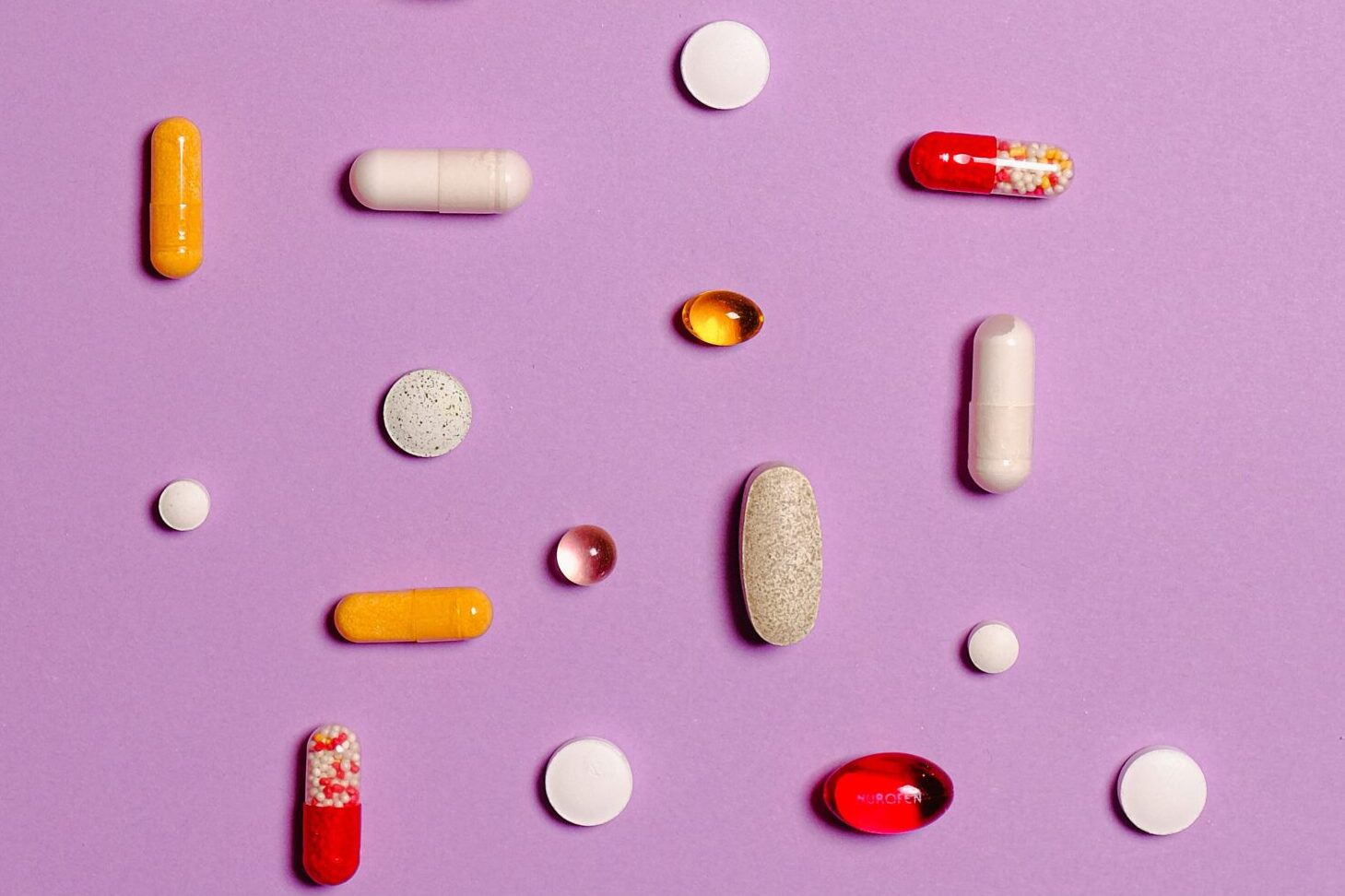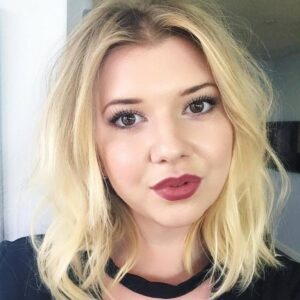In the mental health world, a debate persists: to pill or not to pill? For some, prescription meds can be lifesaving; for others, they’re not a preferred treatment method. In “The Pill Diaries,” we’ll be telling your stories in your own words. The goal: End pill shaming, bust stigmas, and promote understanding. After all, each person’s journey to better mental health is uniquely their own.
Bipolar disorder, BPD, PTSD, PMDD, ADHD, and a history of disordered eating for good measure. You name it, I got it.
I have a complicated relationship with my list of diagnoses because honestly, labels give me the ick. Mental illness is very nuanced, especially if you’re someone with multiple comorbidities like me. Either way, I’m grateful that these terms led me to the right prescription cocktail. At 36, I’m starting to feel like life is worth living. Finally.
On and Off Ritalin
In my 20s, I wasn’t self-aware enough to fully recognize the extent of my symptoms, but there was one thing I knew for sure: I had trouble concentrating. Unsurprisingly, I was diagnosed with ADHD on my first visit to a psychiatrist and promptly began popping Ritalin.
It helped, until a shortage in 2013 made it nearly impossible for me to refill my prescription. (Sound familiar?) I’d travel from pharmacy to pharmacy trying to get my pills to no avail. It was so frustrating that I ended up quitting them cold turkey. (0/10 stars; I would not recommend doing that.)
Coming off of them was a nightmare. The withdrawal symptoms were so painful that I decided then and there that I didn’t want to be dependent on drugs to function. Spoiler alert: I have different feelings about medication now.
Trial of Errors
After a three-year break from the world of psychiatry, I went shopping for a new doctor in 2016, quickly racked up some new diagnoses (general anxiety disorder and major depressive disorder, or GAD and MDD for short), and became a psych med connoisseur. On my quest for stability, I tried pretty much everything. Adderall, Xanax, Ativan, Lexapro, Pristiq, Buspar, Hydroxyzine, etc., etc., etc.
The pills prescribed for MDD, like Lexapro, were especially tricky for me. Lexapro slightly alleviated my depression, but it also added 25 pounds and removed my ability to orgasm. (Sorry, but the juice was not worth the squeeze on that one.)
My doctor said sexual side effects are common among SSRIs (selective serotonin reuptake inhibitors, oft-prescribed for depression), so we switched to Pristiq, an SNRI (a serotonin and norepinephrine reuptake inhibitor, natch—you keeping up?). It helped with the depression symptoms, but I still felt off overall.
The Bipolar Bombshell
In 2017, one doctor saw through my bullshit. I’d been inadvertently downplaying my bipolar symptoms for years, and honestly didn’t realize that some of them were “abnormal.” The bursts of new business ideas and the urge to write a book at 3 a.m.? I just chalked that up to being “creative.” Turns out, docs in the biz call that hypomania.
Within five minutes of speaking to me and asking a few questions about my mood fluctuations and behavior, the doctor had diagnosed me with bipolar disorder type II and wrote me a prescription for Seroquel. I was stunned. This woman just met me! Do I really need an anti-psychotic? How could she possibly know me enough to diagnose me with such a severe mental illness? Well, knew me she did.
Turns out, that psychiatrist was really good at her job, but I wasn’t ready to hear it. I didn’t know enough about the illness (or myself, frankly) to realize that what I was experience was indeed bipolar. So, I completely rejected the diagnosis and never filled that prescription. Oops.
I spent five additional years of suffering because of the stigma surrounding bipolar disorder. I refused to believe I had anything other than a socially acceptable bout of anxiety and depression.
So, I found a new doctor, masked my symptoms, and was promptly prescribed with a new set of ADHD drugs, anxiety meds, and antidepressants. Back to my “normal,” acceptable level of “crazy.” But because I wasn’t being treated for the mood issues related to bipolar disorder, I never fully got relief.
A Retreat and an Epiphany
When COVID hit, I hid in my tiny NYC apartment for six months. TL;DR: It was not good for my mental health in any way. I lost 50 pounds rapidly, and now realize I was likely in a severe bipolar episode.
For the first time, I reached a not-so-high-functioning point and could barely get any work done. I was the most depressed I had ever been, going beyond my typical sadness, dropping to a frightening level of straight-up apathy. I didn’t care about my life or anything in it.
Mental Note: If you are having suicidal thoughts or experiencing a mental health crisis, text or call 988, the Suicide & Crisis Lifeline, any time day or night to speak with a trained counselor.
Desperate for relief, I went on a Kundalini yoga retreat in 2021 that forced the self-awareness I needed to get real help. I expected it to be a relax-on-the-beach vibe, but it was more like trauma-healing boot camp. For years, I’d been girlbossing so hard that I neglected to stop to process feelings or or even acknowledge the extent of my issues. Allowing myself this time to pause and look within let me truly accept who I am, warts and all.
Getting Holistic (and High)
After my yoga-induced epiphany, I sought out a holistic doctor to get to the root of my issues. I’m so thankful to have found board-certified holistic psychiatrist Narveen Dosanjh, M.D., in New York City. Before even touching her prescription pad, she did a full diagnostic analysis complete with bloodwork to identify any nutritional deficiencies.
She identified that I had hypothyroidism, along with several vitamin and mineral deficiencies, which can all contribute to mental health issues by exacerbating depression. From there, I essentially overhauled my lifestyle per her recommendations, started an anti-inflammatory diet to improve my gut health (and in turn, my mental health), cut down on caffeine, and removed alcohol, too.
GOTTA READ: When Psychiatrists Ignore You
In addition to my new nutrition plan, Dr. Dosanjh put me on Vyvanse for my ADHD, Buspar (an Rx called an anxiolytic) for anxiety, kept me on Pristiq for depression, and added a mood stabilizer, Lamictal, to balance my bipolar episodes.
As a final step, Dr. D suggested I try Spravato, a psychedelic medicine that’s a derivative of ketamine, as it can help those with severe or treatment-resistant depression. She hadn’t steered me wrong yet, so I gave it a shot, and I’m so glad that I did. Within weeks I started to feel like an entirely new person.
Spravato is designed to strengthen the connections between neurons and help with the growth of new ones. This essentially improves the functioning of the brain circuits involved with mood. It’s a self-administered nose spray that I use weekly in her office under her supervision.
For me, the positive benefits have expanded beyond my mental health symptoms. It’s helped me with everything from nervous system regulation to relief from long-COVID issues. I’ve been on it for a year, and it has been one of the most beneficial elements of my healing journey.
It was a long road to get here, but I’m happy to report that I’m happy now.
MENTAL NOTE: A medication one person takes may not work for another and may have different side effects. Always talk to your doctor before trying or switching psychiatric medications.
Anti-inflammatory Diets and Depression: Belliveau R, Horton S, et al. BMC Psychiatry. 2022.





